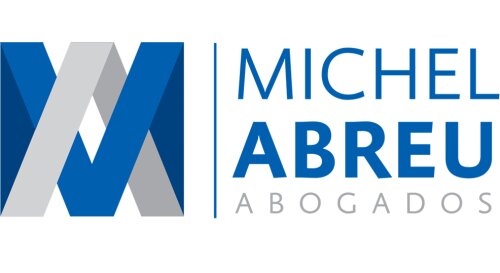Best Employer Lawyers in Punta Cana
Share your needs with us, get contacted by law firms.
Free. Takes 2 min.
List of the best lawyers in Punta Cana, Dominican Republic
About Employer Law in Punta Cana, Dominican Republic
Employer law in Punta Cana, part of the Dominican Republic's broader legal framework, governs the relationship between employers and employees. It encompasses regulations on employment contracts, workplace safety, employee rights, dispute resolutions, and terminations. In Punta Cana, a tourist-heavy region, the application of these laws may tilt towards sectors like hospitality and services, where contractual nuances and labor conditions are particularly observed. Understanding employer legal structures here is crucial, ensuring compliance with national labor laws while balancing the needs of employers and employees in this vibrant locale.
Why You May Need a Lawyer
There are various situations where employers or employees in Punta Cana might require legal assistance:
- Negotiating or drafting employment contracts to ensure they comply with local laws.
- Handling disputes related to wages, working hours, or unjust dismissals.
- Navigating collective bargaining agreements or union-related matters.
- Understanding obligations and rights regarding workplace safety and health regulations.
- Seeking mediation or arbitration in case of labor disputes.
- Ensuring compliance with specific sectoral laws affecting businesses in hospitality and tourism.
Local Laws Overview
The Dominican Republic's Labor Code (Código de Trabajo) serves as the foundation of employer law in Punta Cana. Key aspects include:
- Employment Contracts: Contracts can be verbal or written but must adhere to legal formalities for validity, defining the rights and obligations of both parties.
- Working Hours and Conditions: Standard working hours are typically 44 hours per week, with provisions for overtime pay.
- Minimum Wage: Minimum wage standards vary by sector; it's vital for employers to adhere to these regulated wages to avoid legal issues.
- Termination and Severance: Regulations stipulate specific conditions under which employees can be legally terminated, including required severance payments.
- Safety Regulations: Employers must provide a safe working environment in compliance with health and safety standards.
- Collective Labor Rights: Employees have the right to unionize, and employers must navigate these rights carefully.
- Leave Entitlements: The law outlines various leave entitlements, including vacation days, maternity leave, and sick leave.
Frequently Asked Questions
What constitutes a legal employment contract in the Dominican Republic?
An employment contract can be verbal or written but must clearly outline the roles, responsibilities, working hours, and remuneration details. Written contracts are recommended for clarity and legal enforcement.
How is overtime pay calculated?
Overtime is typically paid at an increased rate, which can be as much as 35% above normal hourly wages. This rate can increase further during night shifts or holidays.
What are the consequences of wrongful termination?
Wrongful termination can lead to legal ramifications for the employer, including the obligation to pay severance, fines, and potential reinstatement of the employee.
Are employers required to provide health insurance?
While employers are not obligated to provide health insurance directly, they must contribute to the national social security system, which provides health and other benefits to employees.
How are disputes generally resolved?
Labor disputes can be addressed through mediation and arbitration. If unresolved, they can be escalated to labor courts.
What rights do employees have when forming or joining unions?
Employees are free to form or join unions, and employers must respect collective bargaining processes and union rights as stipulated in the Labor Code.
What are the standard leave entitlements in Punta Cana?
Employees are entitled to annual paid leave, maternity leave, and sick leave, among other localized allowances depending on industry standards.
How should workplace safety be ensured?
Employers need to adhere to regulations governing workplace conditions to ensure safety and health standards, often inspected by governmental bodies to ensure compliance.
What constitutes discriminatory practices in employment?
Discriminatory practices include bias in hiring, firing, salary, and promotions based on race, gender, religion, or other protected attributes.
How can changes in local labor laws affect my business?
Local labor laws often evolve, especially in dynamic economic areas like Punta Cana. Keeping informed and consulting legal experts ensures compliance and avoids potential legal penalties.
Additional Resources
For further guidance, the following resources can be helpful:
- Ministry of Labor of the Dominican Republic: Offers resources and updates on labor laws.
- Local Bar Associations: Provides referrals to practicing employment law attorneys.
- Chamber of Commerce in Punta Cana: Offers support and information for businesses seeking legal compliance.
- National Social Security Council: Outlines employee social security benefits and employer obligations.
Next Steps
If you suspect you need legal assistance in employer-related matters in Punta Cana, consider the following steps:
- Contact a local employment lawyer familiar with Dominican Republic labor law.
- Document all issues, contracts, and communications related to your legal concern.
- Consult with government resources or legal aid societies for advice and potential mediation.
- Stay informed about employment law updates that might affect your rights or obligations.
Taking these steps early can assist you in navigating employer-related legal issues more effectively.
Lawzana helps you find the best lawyers and law firms in Punta Cana through a curated and pre-screened list of qualified legal professionals. Our platform offers rankings and detailed profiles of attorneys and law firms, allowing you to compare based on practice areas, including Employer, experience, and client feedback.
Each profile includes a description of the firm's areas of practice, client reviews, team members and partners, year of establishment, spoken languages, office locations, contact information, social media presence, and any published articles or resources. Most firms on our platform speak English and are experienced in both local and international legal matters.
Get a quote from top-rated law firms in Punta Cana, Dominican Republic — quickly, securely, and without unnecessary hassle.
Disclaimer:
The information provided on this page is for general informational purposes only and does not constitute legal advice. While we strive to ensure the accuracy and relevance of the content, legal information may change over time, and interpretations of the law can vary. You should always consult with a qualified legal professional for advice specific to your situation.
We disclaim all liability for actions taken or not taken based on the content of this page. If you believe any information is incorrect or outdated, please contact us, and we will review and update it where appropriate.










